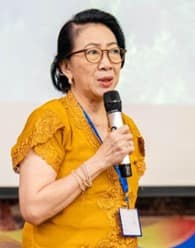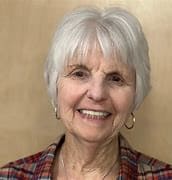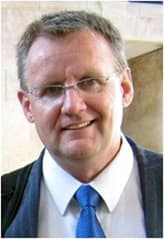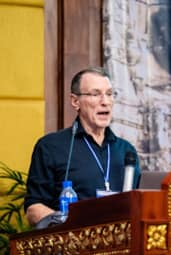REPORT: The 5th EMDR Asia Conference 2023, Siem Reap, Cambodia

Date: 15th–17th December 2023
Location: Siem Reap, Cambodia, Kingdom of Wonder
Theme: “EMDR Therapy, Rebuilding Hope”
Venue: Empress Angkor Hotel Siem Reap Building 3rd and 5th floors
Address: National Road 6, Krong Siem Reap, Siem Reap, Cambodia
Host: EMDR Association Cambodia, 126, St. 12BT, Phum Sansom Kosal, Sangkat Boeung Tompun, Khan Meanchey, Phnom Penh, Cambodia.
Telephone: (+855) 89 968 678
Facebook: https://www.facebook.com/emdrcambodia
Email: info@emdrcambodia.org
Website: www.emdrcambodia.org
The 5th EMDR Asia Conference, held in Siem Reap, Cambodia, was a gathering of professionals dedicated to advancing the transformative power of Eye Movement Desensitization and Reprocessing (EMDR) therapy. The conference’s theme, “EMDR Therapy, Rebuilding Hope,” resonated throughout the event, emphasizing the role of EMDR in promoting healing and resilience.
The 5th EMDR Asia Conference began with a sense of optimism and commitment towards advancing EMDR therapy’s impact on healing trauma and rebuilding hope across Asia and beyond. Pre conference workshops took place on the 15th of December, followed by the conference on the 16th and 17th of December.
Key Messages from Distinguished Speakers
- President Om Plaktin (EMDR Cambodia): Welcomed attendees and highlighted the conference’s role in promoting unity, diversity, and mental well-being. Emphasized gratitude for contributions to humanity’s shared journey.

- President Tri Iswardani Sadatun (EMDR Asia): Expressed pleasure in witnessing professionals unite for EMDR’s advancement, emphasizing hope-building through collaborative efforts.
- Robbie Dunton (EMDR Institute): Acknowledged EMDR Asia’s growth and praised its efforts in maintaining quality standards and embracing diversity.
- Dr. Carol Martin (Trauma Recovery): Expressed honor and delight in EMDR Asia’s achievements, highlighting its commitment to excellence in training and humanitarian assistance.
- Rosalie Thomas (Former President of EMDRIA, Senior Trainer EMDR Trauma Recovery/HAP): Reflected on EMDR Asia’s journey, emphasizing collaborative capacity-building efforts and passing the torch of hope to future practitioners.

- Dr. Sushma Mehrotra (Chairperson Training Standards and Accreditation): Celebrated EMDR Asia’s progress towards independence in establishing regional training programs and standards.

- Matthew Woo (Immediate Past President, EMDR Asia): Welcomed attendees and emphasized the conference’s focus on developing EMDR therapy in Asia, particularly in disaster management.

Conference Highlights
– The conference served as a platform for knowledge sharing, collaboration, and exploration of innovative approaches in EMDR therapy.
– Discussions centered on expanding EMDR’s reach and effectiveness, with a focus on disaster management and increased regional research contributions.
– Attendees were encouraged to actively participate, share ideas, and carry the passion for healing forward to their communities.
Pre-Conference Workshops
Workshop 1 – “Social and Culturally Related Trauma and Adversity in EMDR Therapy”**
Presenter: Dr. Mark Nickerson, USA
Chair: Dr. Tri Ishwardani Sadatun
Dr. Mark Nickerson conducted a workshop emphasizing the importance of considering social and cultural factors in trauma therapy, particularly focusing on Culturally Based Trauma and Adversity (CBTA). He discussed the need to refine trauma assessment and treatment to address contextual influences, highlighting potential oversights in traditional trauma therapy regarding cultural factors. The workshop aimed to enhance trauma therapy by acknowledging and addressing the impact of cultural and societal factors, contributing to more effective and culturally competent EMDR therapy practice.

Workshop 2 – “Practical Challenges and Cultural Implications for EMDR Asia Practitioners”
Presenters: Dr. Deborah Silveria, Dr. Michelle Gottlieb, Dr. Dushyant Bhadlikar, Dr. Jinsong Zhang
Chairperson: Dr. Sushma Mehrotra
The workshop focused on navigating practical challenges and understanding cultural nuances in EMDR therapy for Asian practitioners. It addressed potential errors, therapist drift, and cultural considerations in trauma therapy within Asian contexts. Despite challenges, the workshop emphasized EMDR therapy’s effectiveness and cultural competence, providing valuable insights and strategies for practitioners in the region.

Panel Discussions
Panel Discussion 1
Topic: Trauma Recovery Network-Community Outreach for Disaster Response
Panelist: Dr. Sushma Mehrotra, Chilton Fernandez, Janet Nethisinghe, Dr. Jingsong Zang, Dr. Carol Martin, Dr. Tri Ishwar Dani, Dr. Mahjabeen Haque, Dr. Sawera Mansoor, Jackie Viemilawati
This session focused on the network’s efforts to assist communities impacted by disasters.
The presentation highlighted the critical role of TRN volunteers, specifically mental health professionals trained in EMDR (Eye Movement Desensitization and Reprocessing) therapy. These volunteers provide pro bono services to disaster survivors and first responders, helping them address the psychological trauma often associated with such events.
The session emphasized the importance of TRN’s pre-disaster preparedness efforts. These efforts ensure that local chapters have the infrastructure and trained personnel in place to respond quickly and effectively when a disaster strikes.
Through case studies or examples, the session likely showcased the effectiveness of TRN’s intervention model. This would have demonstrated how EMDR therapy can help survivors process their experiences and begin the healing journey.
Overall, the session provided valuable insights into the Trauma Recovery Network’s vital role in supporting communities during and after disasters.

Panel Discussion 2
Topic: Spirituality and EMDR
Panelist: Chilton Fernandez, Chintan Naik, Dr. Derek Farrell, Dr. Mowadat Rana, Marisol Erlacher, Janet Nethisinghe
The panel discussion explored the intersection of spirituality and EMDR (Eye Movement Desensitization and Reprocessing) therapy. The panelists, likely consisting of mental health professionals with experience in both areas, delved into the complexities and potential benefits of integrating these approaches in trauma treatment.
The Impact of Trauma on Spirituality: The panelists likely discussed how traumatic experiences can shatter a person’s sense of security and connection to a higher power or spiritual belief system. This can lead to feelings of isolation, despair, and a questioning of one’s core beliefs.
EMDR as a Tool for Spiritual Healing: The discussion likely explored how EMDR therapy can be used to address the emotional and cognitive aspects of trauma that can affect a person’s spirituality. By processing traumatic memories and associated negative beliefs, EMDR may help individuals reconnect with their spiritual selves.
Challenges and Considerations: The panelists likely addressed the challenges of integrating spirituality into EMDR therapy. This may include navigating differences in therapist and client belief systems, ensuring cultural sensitivity, and respecting the client’s autonomy in their spiritual journey.
Benefits of a Holistic Approach: The discussion likely highlighted the potential benefits of a holistic approach that combines EMDR therapy with spiritual practices such as meditation, prayer, or connection with a faith community. This approach can promote healing on multiple levels – emotional, psychological, and spiritual.

Keynote Address and Special Sessions: “EMDR Therapy – Rebuilding Hope in Asia”
Keynote Address 1
Speaker: Dr. Carol Martin
Chair: Dr. Masaya Ichii
Dr. Carol Martin’s keynote address highlighted collaborative efforts and strategies employed by EMDR Asia to rebuild hope and deliver effective trauma therapy across Asia. She discussed EMDR Asia’s role in training, faculty development, and disaster response, showcasing the success and impact of collaborative initiatives within the region.
Keynote Address 2
Speaker: Derek Farell
Chair: Dr. Sushma Mehrotra
Topic: Understanding Moral Trauma/Injury Through the Lens of Adaptive Information Processing: Conceptual Framework and Treatment Interventions
The keynote session by Dr. Derek Farrell explored moral trauma/injury, a violation of core beliefs causing lasting distress. While linked to PTSD, it’s not a current diagnosis.
The session focused on EMDR therapy for moral trauma/injury. It emphasized the importance of individual experiences and how EMDR considers a person’s values and self-concept. The workshop also analyzed how the Adaptive Information Processing (AIP) model can be used alongside EMDR therapy in treating moral trauma/injury.
Special session 1
Presenter: Dr. Dolores Mosquera
Topic: Moving Safely from Stabilization to Processing Traumatic Memories in Dissociative Disorders: Micro-Processing Procedures
Chair: Dr. Parul Tank
Dr. Dolores Mosquera’s workshop provided practical strategies for transitioning safely from stabilization to processing traumatic memories in clients with dissociative disorders. The session emphasized micro-processing techniques to enhance client stabilization while addressing traumatic memories effectively.
Special Session 2
Presenter: Dr. Dolores Mosquera
Topic: Treatment of Somatoform Dissociation With EMDR
Chair: Dr. Deborah Silveria
Dr. Dolores Mosquera’s workshop delved into using Eye Movement Desensitization and Reprocessing (EMDR) therapy to treat somatoform dissociation. She discussed the challenges of addressing physical symptoms without a clear medical cause, emphasizing the role of unresolved traumatic experiences in somatoform dissociation. Dr. Mosquera highlighted specific approaches and techniques within EMDR therapy to address these symptoms effectively.

Special Session 3
Presenter: Dr. Gary Quinn
Topic: Past, Present, and Future Disasters and Modified Brief EMDR Interventions
Chair: Dr. Tri Iswardani Sadatun
Dr. Gary Quinn’s workshop focused on Immediate Stabilization Procedure (ISP®) and its role in psychological stabilization after traumatic events. He discussed the impact of trauma on individuals’ sense of security and hope and highlighted ISP® as a crucial tool for early intervention and trauma processing. The session concluded with insights into ISP®’s rapid application and effectiveness in various traumatic situations.
The pre-conference workshops, keynote address, and the special sessions provided a comprehensive platform for discussing and advancing trauma therapy, especially within the context of EMDR. Key workshops and sessions addressed crucial topics such as cultural considerations, complex trauma treatment, and innovative interventions like ISP. The collaborative spirit and expertise shared by presenters and participants alike contributed to enriching discussions and fostering a deeper understanding of trauma recovery strategies. Overall, it was a significant success in promoting effective and culturally competent trauma therapy practices in the Asian region.
Paper & Poster Presentations
Case Studies:
- EMDR Treatment Course by Chanhen Tsai (author) explored a patient’s treatment journey.
- EMDR for Preverbal Trauma (poster) by Shaheen Islam examined a case using the Dialogue Protocol of EMDR.
- EMDR for Post-Traumatic Stress Disorder (PTSD) in Adults by Yi Jing Wo & Xiangzhen Ma presented a meta-analysis on intervention effectiveness.
- EMDR for Non-Suicidal Self-Injury (NSSI) in a Teenager by Jianjun Li documented a case study.
- EMDR for Ideas of Reference by Mathew Woo addressed a case involving this specific thought pattern.
- EMDR for a Teenager with Borderline Intelligence by Ayaza Yazdani (Pakistan) presented an adolescent case study.
- EMDR and Storytelling in Young Children (Indian perspective) by Deepak Gupta & Nabanita Sengupta explored this approach.
- EMDR for Dissociation by Adithy addressed treatment of this dissociative disorder.
- EMDR for Prolonged Grief by Liam Spicer covered assessment, treatment considerations, and the treatment process.
- EMDR with a Family Member by Sophearith Phul presented a case study on personal connection in therapy.
- EMDR for Chronic Pain by Rusham Zahra Rana (Pakistan) offered a compelling case study.
- EMDR for Students After a Fire Tragedy by Sanskruti A. Joshi & Chintan Naik explored use with this population.
- EMDR for Flood and Pandemic Isolation by Chilton George Fernandez examined this specific situation.
Group EMDR Applications:
- EMDR for Anger and Anxiety in Orphans by Usha Verma Srivastava explored use in a group setting.
- EMDR Group Protocol for Caregivers of an Injured Elephant by Kiran Bashir Ahmad (Pakistan) presented a case study.
- EMDR Group Treatment for Adolescent Distress by Nazia Mustafa et al. (Pakistan) reported on a pilot randomized controlled trial.
EMDR Techniques and Adaptations:
- Navigating Challenges of Advancing EMDR Practices in South India (poster) by Gincy Mathew addressed specific considerations in that region.
- Multidisciplinary Approach for Dyspeptic Patients with Trauma by Yulia Direzekia & Azzaki Abubakar explored this integrated approach.
- Cultural Factors Affecting EMDR Effectiveness in Sri Lanka by Sutharsshini Ramesh & Kanthi Hettigoda examined this topic.
- Introducing EMDR for Trauma Healing in Palliative Care by Nuzhat-E-Rahman & Mahjabeen Haque addressed use with this patient population.
- EMDR for Reducing Impulsive Behavior by Maksuda Begum (Pakistan) explored use with a specific population.
- EMDR and Self-Resilience by Kiran Bashir Ahmad (Pakistan) presented a case study on a group using EMDR Group Traumatic Episode Protocol (G-TEP).
- Creative Processing of Complex Trauma by Sangita Thakur explored using EMDR for medical misadventure and complex abuse.
- Good EMDR: Balancing Mind, Body, and Spirit by Tri Swasono Hadi offered a perspective on holistic EMDR application.
- Modified Case Conceptualization for EMDR with Personality Issues by Chintan Naik addressed adaptations for this population.
- Cognitive Interweaves based on Asian Stories and Proverbs by Chintan Naik et al. explored this culturally-sensitive technique.
EMDR for Specific Issues:
- EMDR for Traumatic Grief During COVID-19 by Sawera Mansoor examined use in a mixed methods study.
- EMDR for Competing Interpersonal Trauma in Pakistani Women by Kiran Shehzadi et al. presented a case series.
- EMDR for Mindfulness in Support of Victims of Extreme Violence by Donald F. deGraffenried explored combining these approaches.
Research on EMDR Efficacy:
- The Efficacy of Online EMDR for PTSD by Xianbin Li & Yuping Wang presented a randomized controlled trial.
- A Randomized Controlled Trial on EMDR Stabilization Techniques for PTSD, Anxiety, and Depression by Mr. OM Plaktin investigated this intervention’s effectiveness.
Other Presentations:
- Anthropology, Theology, Philosophy, and Science of Psychotrauma by Mowadat Rana examined these various perspectives on trauma.
- Collective Trauma of Interpersonal Nature by Laura Rocchietta Tofani explored theoretical considerations and practical applications for EMDR therapists.
- Rebuilding Self: A Traumatized Adolescent’s Journey by Karishma Shah Savla presented a case study on using EMDR for healthy development.
The comprehensive range of case studies, group applications, technique adaptations, and explorations into specific trauma-related issues showcased at the conference underscored the versatility and effectiveness of EMDR therapy. These presentations provided valuable insights into how EMDR can be tailored to address diverse challenges across different populations and settings. The integration of EMDR with other therapeutic approaches was a recurring theme, demonstrating the potential for holistic healing and multidisciplinary collaboration in trauma treatment. Moreover, discussions on cultural considerations highlighted the importance of cultural competence in delivering effective EMDR therapy. Overall, the conference contributed significantly to the ongoing evolution and refinement of trauma treatment practices, emphasizing the continued relevance and impact of EMDR therapy in the field of mental health.
******













